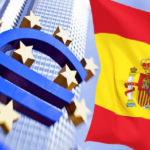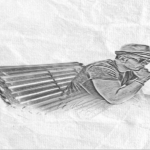
There are cities that simply live off the murmur of their walls, the weight of their past, the echo of their stones. And there are others—a minority—that understand that culture is not an ornament, but a heartbeat. Palma wants to occupy this second place. Palma wants to move. “The Mediterranean in Motion”: that’s what it has decided to call it, convinced that the Mediterranean is not a still sea, but a constantly shifting mirror where cultures, hopes, and wounds converge.
The project with which Palma is applying to be European Capital of Culture 2031 isn’t about grand, empty gestures. It’s about accessibility and inclusion. It’s about opening the doors of the city so that no one is left out, so that culture ceases to be a privilege for the few and becomes a shared breath. It’s about giving a voice to the invisible, guaranteeing equitable access to culture, and testing new forms of citizen participation. And all of this isn’t a slogan: it’s a call to transform the city model.
The European Union awards this title to one or two cities each year. In 2031, it will be Spain and Malta’s turn. And Palma knows it’s not alone in this race: Granada, Toledo, among other cities, have raised their hands. All have merits. All have history. But Palma has something different: a geography that is both destiny and metaphor.
Being the European Capital of Culture is not a trophy; it’s a contract with the future. The chosen city will receive the Melina Mercouri Award, a name that is no coincidence. That Greek actress and politician, a staunch Europeanist, once said: “I have roots; I am terribly sensitive to everything Greek, to every color, every smell, the sea, and every song.” In its nomination, Palma seems to respond: “We too feel the Mediterranean this way: every wave, every scent, every stone is identity, memory, roots.”
Today, more than ever, Palma needs to transform itself from within. Its residents demand a vibrant capital, capable of bringing together the best of its cultural, gastronomic, heritage, sporting, innovative, and natural offerings. A city that isn’t a static museum, but an open stage. A city that invites, that adds, that seduces, that breathes.
And because culture is also sung, I can’t help but evoke Jaime Anglada, our Palma native, who reminded us with his song “Palma” that we always walk towards it. From here, I wish him a speedy recovery so we can once again hear that voice that turns into melody what many of us feel in silence.
The Euroafrica Foundation joins in supporting Palma on its path to 2031. We do so out of conviction, out of shared roots between Europe and Africa, but above all, we do so for something simpler and grander: out of common sense. Because a city that opens its doors to diversity, that is committed to inclusion, and that makes culture a bridge and not a border, deserves to be a beacon.
The Mediterranean will continue to move. Palma too. And perhaps, in 2031, history will decide that both currents merge into a single sea: the sea of European culture, without barriers, without exclusions, without silences.





